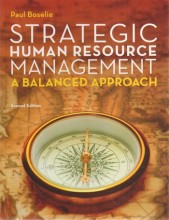Hierarchies - Theme: New Public Management
8 important questions on Hierarchies - Theme: New Public Management
What are the 'Weberian principles' of bureaucracy? Name all 5.
- Public interest separated from private interest
- Regulations specify behavior
- Decisions are implemented from 'top-down'
- Bureaucracies are neutral
- Bureaucrats are the experts
Name the 4 challenges to the traditional model (moving away from Weber).
- State moves from regulatory to service providers: civil servants accountable to both the state and to their clients
- The administrative apparatus was vulnerable to influence by vested interests (corporations, unions, environmental groups)
- The rise of supra-national organizations (EU in particular) allowed local administrations to bypass national administrations: city networks
- Civil servants may also be utility-maximizing individuals, trying to maximize budgets and influence for personal gains
Name 3 important people within the new public management movement
- Milton Friedman
- Ronald Reagan
- Margaret Thatcher
- Higher grades + faster learning
- Never study anything twice
- 100% sure, 100% understanding
Who was Milton Friedman?
- American economist
- Main advocate opposing Keynesian government policies
- Privatization, deregulation, liberalization
- During the 1980s
- Advisor to republican president Ronald Reagan and conservative British prime minister Margaret Thatcher
- Free market economic system with minimal government intervention in social matters
Name 6 characteristics of New Public Management
- Run the public sector as a company: managers, strive for profit, targets, measures
- Privatize public goods: putting a price on nature (water, waste)
- Agencification: agencies, different from ministries, technocratic
- Competition: everything should be done in competition, the most for the least price
- Decentralization: D66, local decisions, as local as possible, close to the citizens
- Empower citizens: to engage in policy processes, power to the people
What is the basic framework of New Public Management? (4)
- Principles: what to get things done (government, state, ministries)
- Agents: the ones that are actually carrying out what the principles want (executive agencies, purchasing agencies, regulators)
- Tendering/bidding: creating competitions (tournaments, auctions)
- Players: carrying out what the government told them what to do (entrepreneurs, corporations (private or public), organizations)
Name 3 criticisms of New Public Management
- A common denominator for success (such as profit) is lacking
- Effectiveness, efficiency, and responsiveness aren't the only important factors
- Consider justice, equity, transparency, fairness
- Increasingly fragmented government
- Different ministries and agencies, European, local
- Ministries and agencies are not connecting resulting in sub-par performance
- Is it really small government?
- Development aid: where is it going?
- We need to evaluate, monitoring, reporting, that is also creating more government and is costing a lot of money
- It doesn't really lead to small government
What can you tell about the Chicago Boys in Chile?
- Group of Chilean economists prominent around the 1970s and 1980s
- Majority was educated at the Department of Economics of the University of Chicago under Milton Friedman
- Upon their return to Latin America, they adopted positions in numerous South American governments
- They advocated deregulation, privatization, and other free market policies for closely controlled economies
- Drastic increases in unemployment that can be attributed to counter-inflation policies implemented on their advice
- CIA helped in the bombing of Santiago, Chile
- Dictator Pinochet
The question on the page originate from the summary of the following study material:
- A unique study and practice tool
- Never study anything twice again
- Get the grades you hope for
- 100% sure, 100% understanding





























